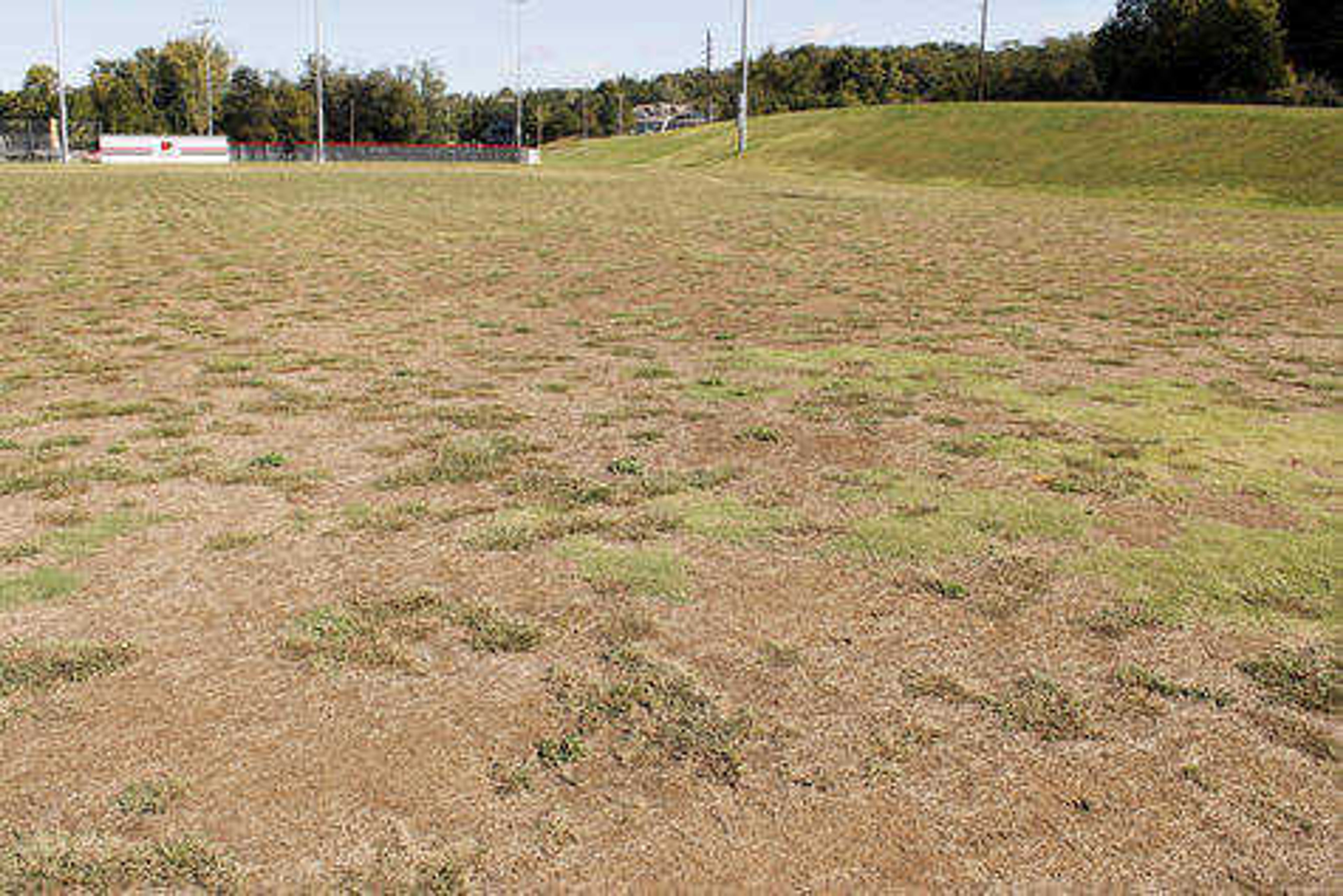Mother Nature takes toll on intramural fields
Last winter took its toll on the intramural fields at Southeast Missouri State University, leaving a lasting impact on this year's intramural programs. An abundance of time and money have been spent to make the fields playable, however the damage has already been done, and alternative solutions are already being considered for the future...
Last winter took its toll on the intramural fields at Southeast Missouri State University, leaving a lasting impact on this year's intramural programs.
An abundance of time and money have been spent to make the fields playable, however the damage has already been done, and alternative solutions are already being considered for the future.
"Just weather-related, last winter we lost our grass on all three of our fields. This also occurred on city fields, the city of Cape lost several fields as well," assistant director of intramurals Jennifer Rose said. "Just the type of grass we had and the type of winter we had didn't mix."
As the spring of 2014 approached, Rose began noticing the deterioration of the fields. When the spring semester ended, Rose started looking for answers on how to repair the fields, but her options were limited.
"We did put seed down this summer," Rose said. "The seed was questionable whether or not it was going to work, but it was one of our options. We didn't have the ability to put it down on all three fields. We did go ahead and move forward with two of the fields, those fields do have grass now, that's our Bertling [Street] field and our upper Bertling field."
While the grass is there and the fields are playable, Rose is still doing damage control as the grass has already begun to show wear and tear.
"The grass kind of grows almost horizontal, so it looks like we've got this nice coverage in there but if you really dig around in that grass you'll see there's not a lot of roots for as much grass as there appears to be," Rose said.
Nonetheless, play still continues on both Bertling fields, but the field off of Sprigg Street is completely unplayable.
"We don't consider it safe enough to play any of the real sports on, so it is completely offline," Rose said. "It is open for recreational use, but we're not scheduling anything on there because it's more dirt than grass right now."
With only two intramural fields open for play, Rose had to make significant changes to the sports provided by the intramural office in order to preserve what quality of field is left and to ensure that the fields will be ready for spring.
According to Rose, outdoor soccer and softball are the two most popular sports each year. Softball is played in both the fall and spring semesters, with outdoor soccer only being offered each fall. However, due to the field off Sprigg being out of commission, all softball games are being played on one field this semester. With only one field in use, this elongates the softball season and the decision was made to eliminate outdoor soccer, which is usually played in the softball field's outfield.
"We're moving soccer indoors, so dodgeball has to come over to play in the east gym because we've been playing dodgeball at Parker, which is a great facility for dodgeball," Rose said. "I've got to move soccer because it's a huge sport, you know, I've got to put it somewhere. The only other place we can put it at is indoor Parker."
Ultimate frisbee and flag football are being played on the upper Bertling field, but participation was capped in order to limit damaging the fields any further.
The Delta Delta Delta sorority at Southeast hosts a softball tournament each year to raise money for St. Jude's Children's Hospital, but it was unable to use the fields this year due to their conditions.
"We've been trying to get as many options as we can and kind of see what direction the students want things to happen because ultimately what we do on our facilities is driven by student fees and student money," Rose said.
The intramural department shares a budget with the recreation center at Southeast, with $5.25 per credit hour per student dedicated to this budget. Much of that money goes toward paying staff, sports equipment, field supplies and field maintenance.
According to Rose, there were more than 1,500 athletes who participated in intramurals last academic year, and 5,000 total participants overall with many athletes participating in multiple sports.
Rose has explored other seeding options as well as potentially laying down turf on all fields. Turf fields can cost hundreds of thousands of dollars, but Rose said that would pay for itself over time without having to pay employees to maintain the field conditions every day. However, the intramural department simply does not have the funds to put that money up front at this time.
Jake Herbst, a sophomore at Southeast, was a part of the grounds crew for the intramural fields last year. He also has spent the last three years working for the grounds crew at T.R. Hughes Ballpark, home of the River City Rascals, an independent minor league baseball team in O'Fallon, Missouri, as well as spending a year as grounds crew for a golf course.
"The weather definitely played a part, but as far as the lack of grass it was the lack of upkeep and knowledge for maintaining the new sod," Herbst said. "They didn't account for all of the holes made from the divots in soccer and softball. They should have thrown sand down to refill the holes."
While it remains unclear what the future holds for the intramural fields, many improvements may be looming. Only Mother Nature and time will tell.






